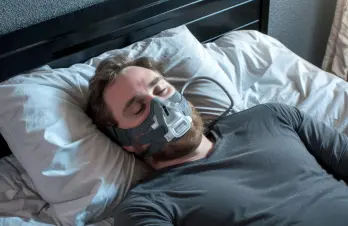
Sleep apnea is more than just snoring—it’s a medical disorder that can have severe consequences. Here are some key signs that indicate you may be suffering from sleep apnea:
Loud Snoring – Especially if accompanied by gasping or choking sounds.
Pauses in Breathing During Sleep – Often observed by a partner.
Gasping for Air at Night – Waking up suddenly feeling short of breath.
Excessive Daytime Sleepiness – Feeling tired or drowsy even after a full night’s sleep.
Morning Headaches – Frequent headaches upon waking due to oxygen deprivation.
Dry Mouth or Sore Throat – Especially noticeable in the mornings.
Difficulty Concentrating or Memory Issues – Cognitive impairment due to poor sleep.
Mood Swings, Irritability, or Depression – Poor sleep quality can impact mental health.
Frequent Nighttime Urination – Waking up multiple times to use the restroom.
Teeth Grinding (Sleep Bruxism) – A common but often overlooked symptom.
If you recognize these signs in yourself or a loved one, it’s crucial to seek medical advice. Left untreated, sleep apnea can contribute to serious health issues such as high blood pressure, heart disease, stroke, and diabetes.
Mon – Fri: Contact on emergency
Thu & Fri - 9 am to 5 pm (By appointment)
Copyright © 2024 TMJ and Facial Relief, All Rights Reserved.